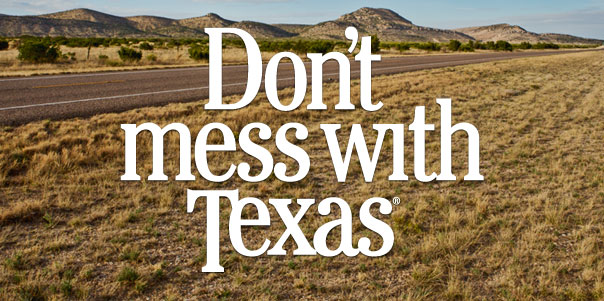
By Rith Kilsby
My name is Ruth. I am not native to Texas, nor do I call the US my real home. Last August, I journeyed from the UK, arriving into Austin and Texas for the first time where I would soon begin to study at UT Austin for the academic year. Since January 2017, however, I have had the fortunate opportunity to intern with the Sierra Club's Lone Star Chapter where I will continue to work with the communications team until May. And even though my time here will end up being relatively short, it by no means reflects what I have learnt; since January, I have discovered a myriad of information about Texas and its environment at an almost exponential rate. But most importantly, however, this experience has broken a few misconceptions I had about not only working for the environment in Texas but the state itself.
Texas is approximately 4,600 miles away from home and therefore, it is no surprise that I knew very little about this state. There are definitely certain perceptions of Texas present at home, mainly concerning oil and gas, pollution, and a consequent human disregard for the environment. I suppose these are not completely myths per se; it is true that Texas leads the nation in crude oil and natural gas production, which arguably has caused a whole host of health and environmental problems. It would be unfair, however, to assume that Texas is overwhelmingly ruled by an unrelenting force called the fossil fuel industry. There are fighters and some of them work for the Sierra Club's Lone Star Chapter.
And that’s what the Sierra Club has helped me realise: there is a considerable green side to Texas. And through my tasks, I have come into contact with material that has evidenced just this; Texas is arguably becoming a pioneer in renewable energy, leading the nation in wind energy production while similarly, Austin and San Antonio have been recently ranked within the top twenty solar cities in the US (by total installed solar PV capacity). Even the Guardian has noticed this, publishing a story in February 2017 that highlighted how Texas has become a national leader in wind energy, producing three times as much energy as Iowa, the state with the second largest wind capacity.
As nice as it was to see the Guardian portray Texas as such a front-runner in renewable energy, I soon realised that they had missed a significant proponent that helps to explain how Texas has become such an unlikely green leader: the authors failed to mention the lobbyists and organisations that work hard to push for a greener agenda, the Sierra Club included. I find this incredibly unfair. The commitment I have seen from the hard-working individuals at the office has been noteworthy; the fallbacks and the battles, the dead-ends and the hard walls that these people are presented with does not dishearten their perseverance. In failing to mention this, it undermines the hours of hard work these people do every day, every week, every month. Without the Sierra Club and other environmental non-profit organisations, Texas arguably would not be achieving these mighty milestones.
I am thankful for this opportunity that has enhanced my time here in Texas; it has helped me to see a side of Texas I never thought I would experience, while simultaneously enabling me to meet a collection of inspiring individuals who care so much about changing the state for the better. And now I am more optimistic than ever that Texas will help play a part in changing the United States into a sustainable role model, regardless of the obstacles.